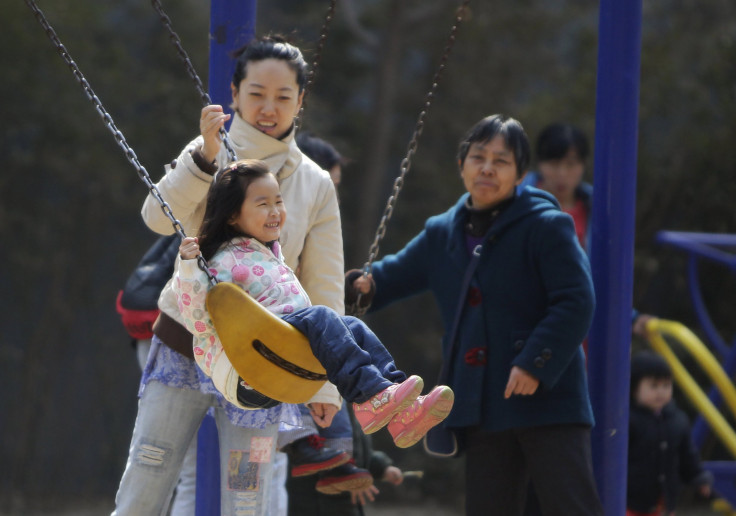China Plans Reform Of One-Child Policy, Rumored Two-Child Policy To Roll Out In 2014

More than three decades after China's infamous one-child policy was implemented, the nation’s Family Planning Commission is assessing various proposals to lift it. State news outlet Xinhua News Agency is reporting that a spokesman for the commission has said that new plans to “improve” the family planning policy and major changes are being evaluated.
The new policy is expected to roll out by early next year and be fully implemented for all families by 2015. The one-child policy is a population control mechanism that limited couples in urban areas to one offspring. However, the unintended consequences of the policy include many socio-economic effects, like sexism because boys were preferred over girls, infanticide, illegal abortions and an overflow of male bachelors. China’s new reform-leaning leadership, helmed by President Xi Jinping, is gearing up to weather several changes in the nation, including a slowdown in the economy's growth, and now may be ready for a change in population strategy.
In a research note to clients, Ting Lu, a Hong Kong-based China economist with Merrill Lynch, said sources indicated that China will soon be allowing two children. “We are optimistic that an end to the one-child policy will soon be confirmed,” Lu said.
Lu estimates the policy lift would result in roughly 10 million new babies being born yearly. Using census data, analysts determined that only 48 percent of families would benefit from the family planning reforms because the restrictions include only-child parents located in urban areas only. Among those families, only a percentage are still of child-bearing age.
“We believe that the reform-minded president Xi and premier Li [Keqiang] will use the opportunity of abolishing the one-child policy to build up their authority, show their determination in making changes and convince the Chinese people that they do have a roadmap for reforms,” Lu also wrote.
Premier Li Keqiang has also expressed concern that the policy is contributing a decline in workers. According to a report by The Telegraph, as One-Child Policy offspring grow up, China’s demographic imbalances are a ticking time bomb. According to the report there are currently five workers for every pensioner in China, a ratio that will drop by two by 2035.
© Copyright IBTimes 2024. All rights reserved.






















